This gay war reporter passed as straight to work in anti-LGBTQ countries – this is his story, in 7 images
Exclusive: "My friends were like: ‘Are you literally insane? You’re going to die," reflects gay journalist and filmmaker Rupert Russell
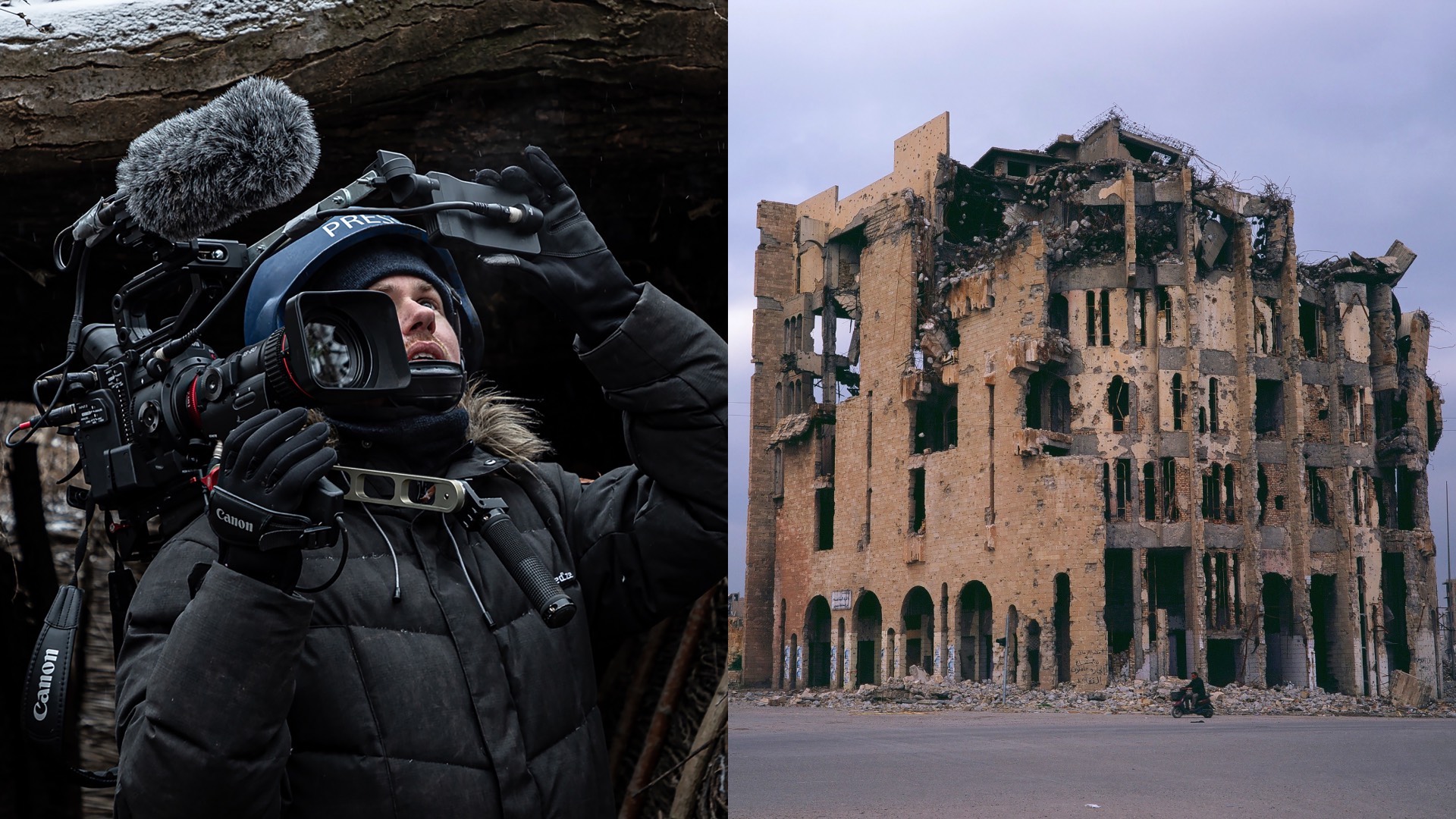
Ever stressed over an outfit that you thought was ‘too gay’ for the office? ‘Are my trousers too tight?’ ‘Is my nail polish too much?’ ‘Is my Pride T-shirt too… political?’ (The answer, of course, should be ‘No.’ But it’s rarely that simple.)
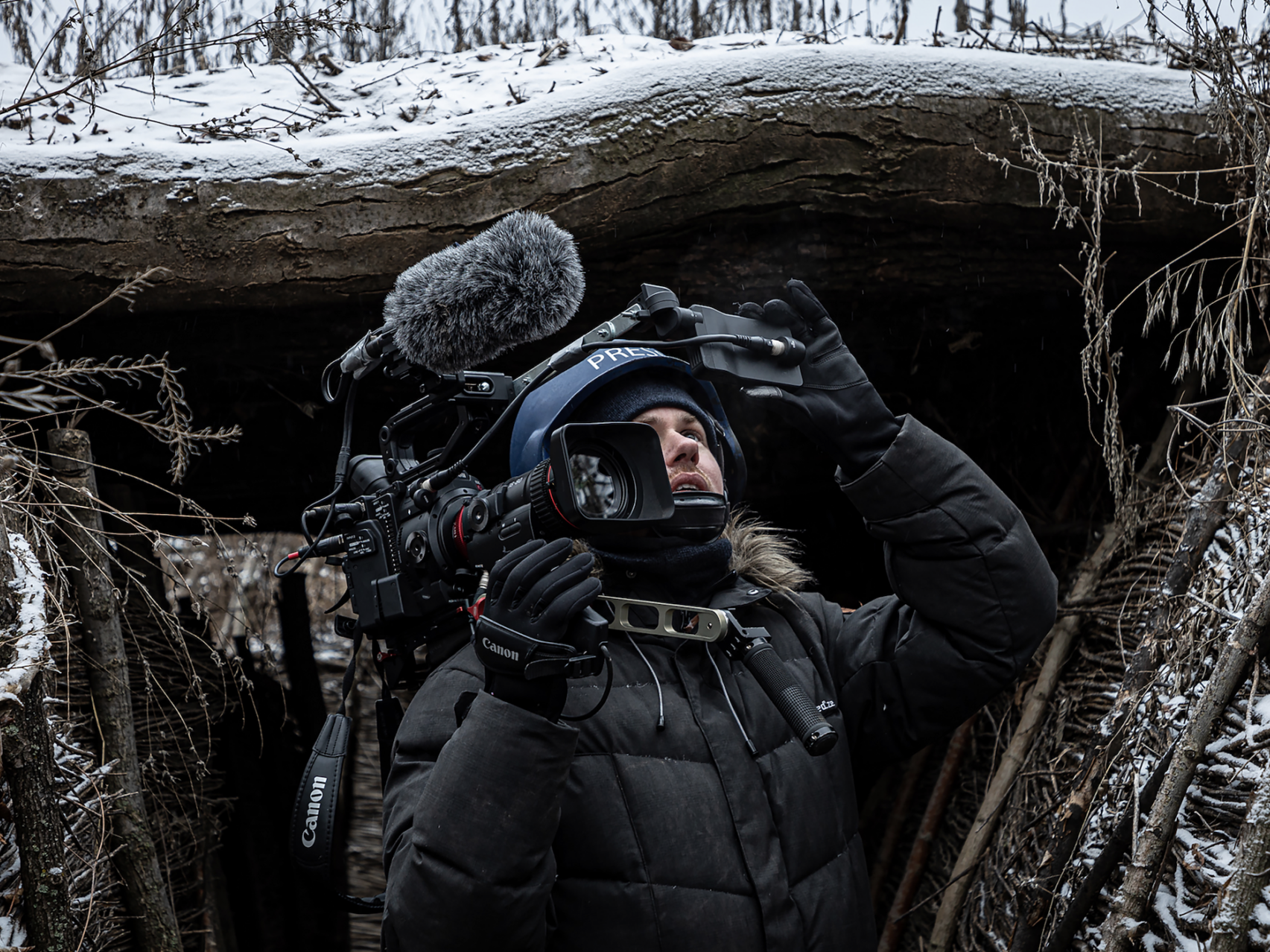
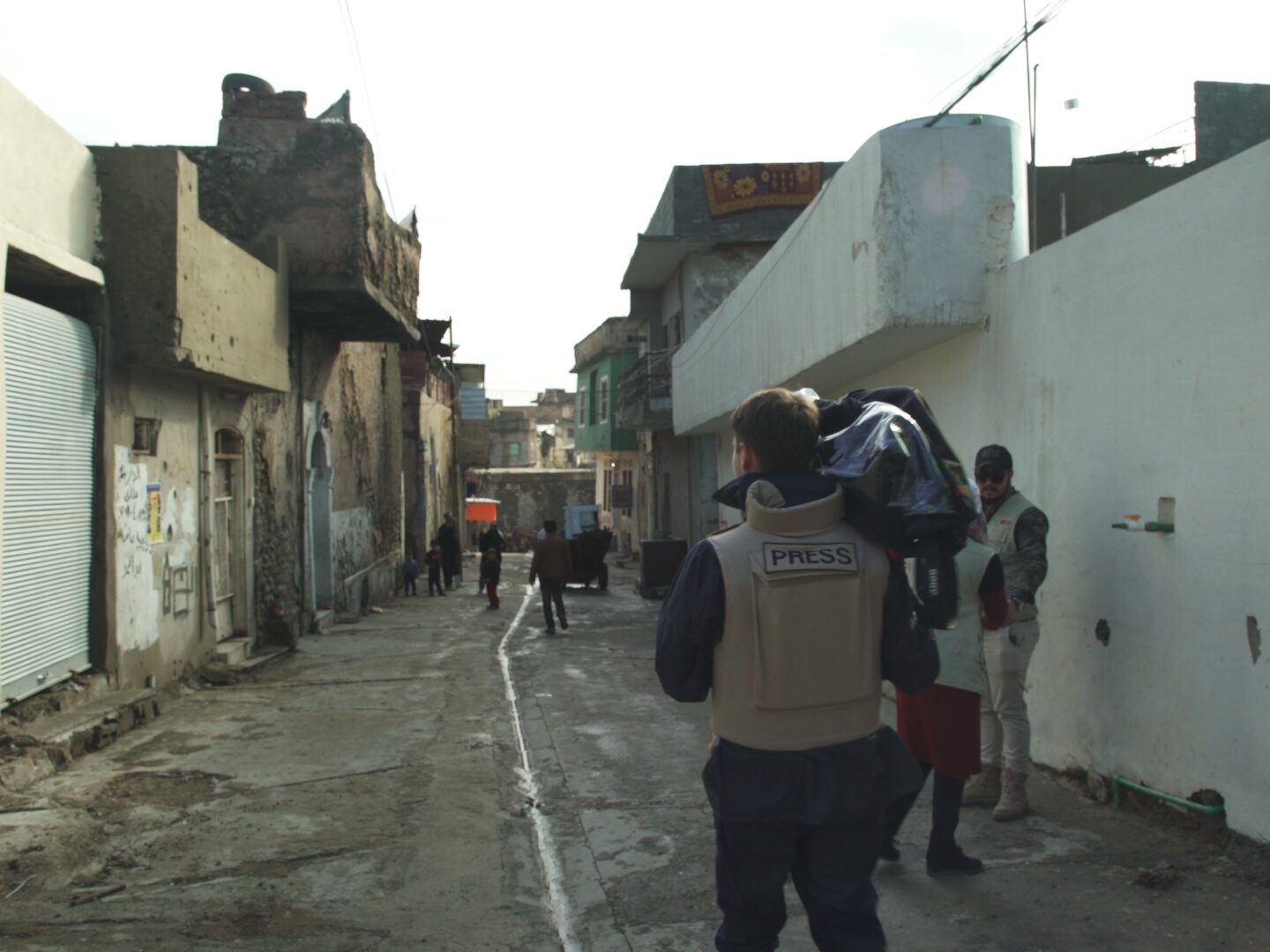
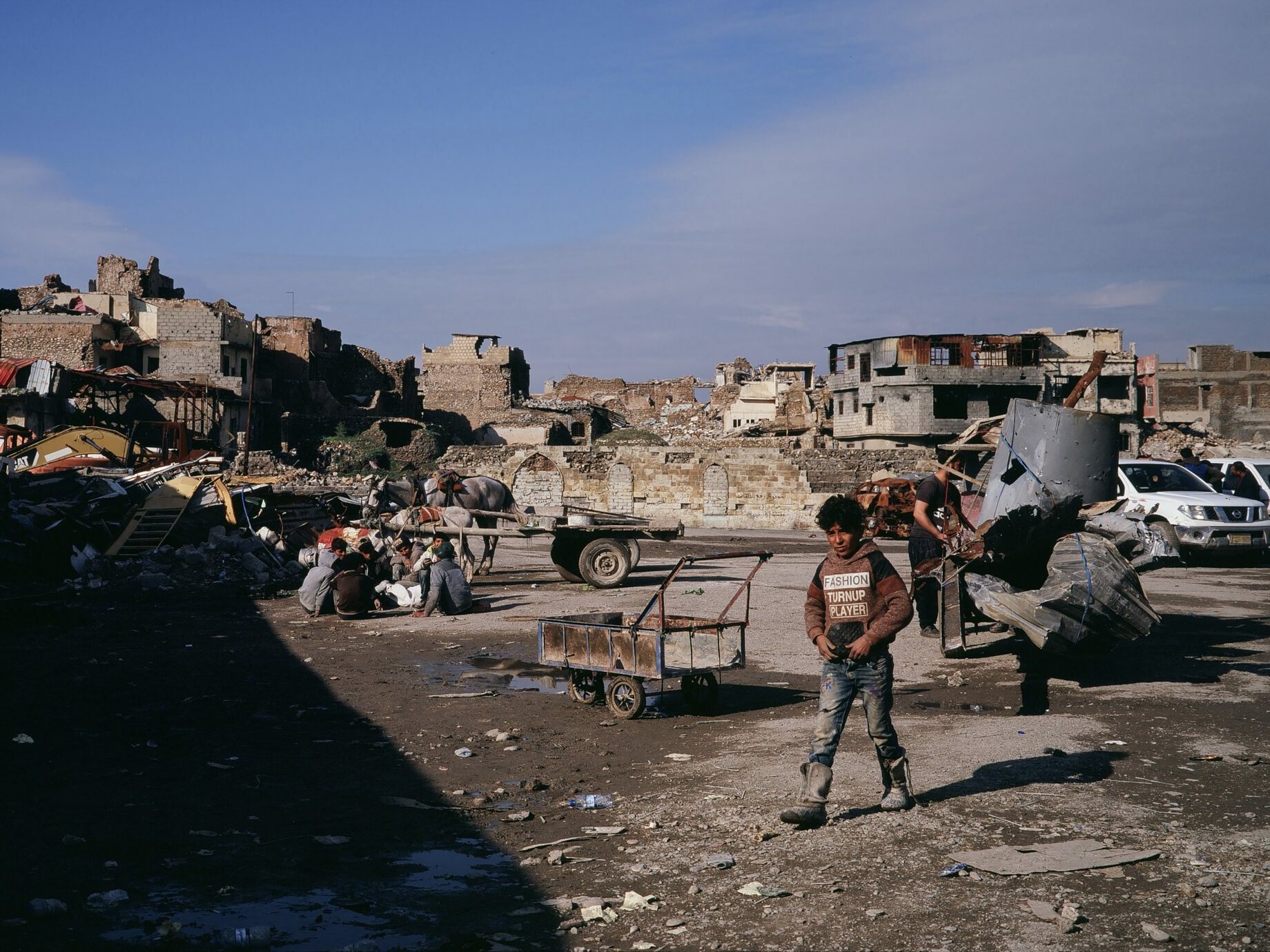
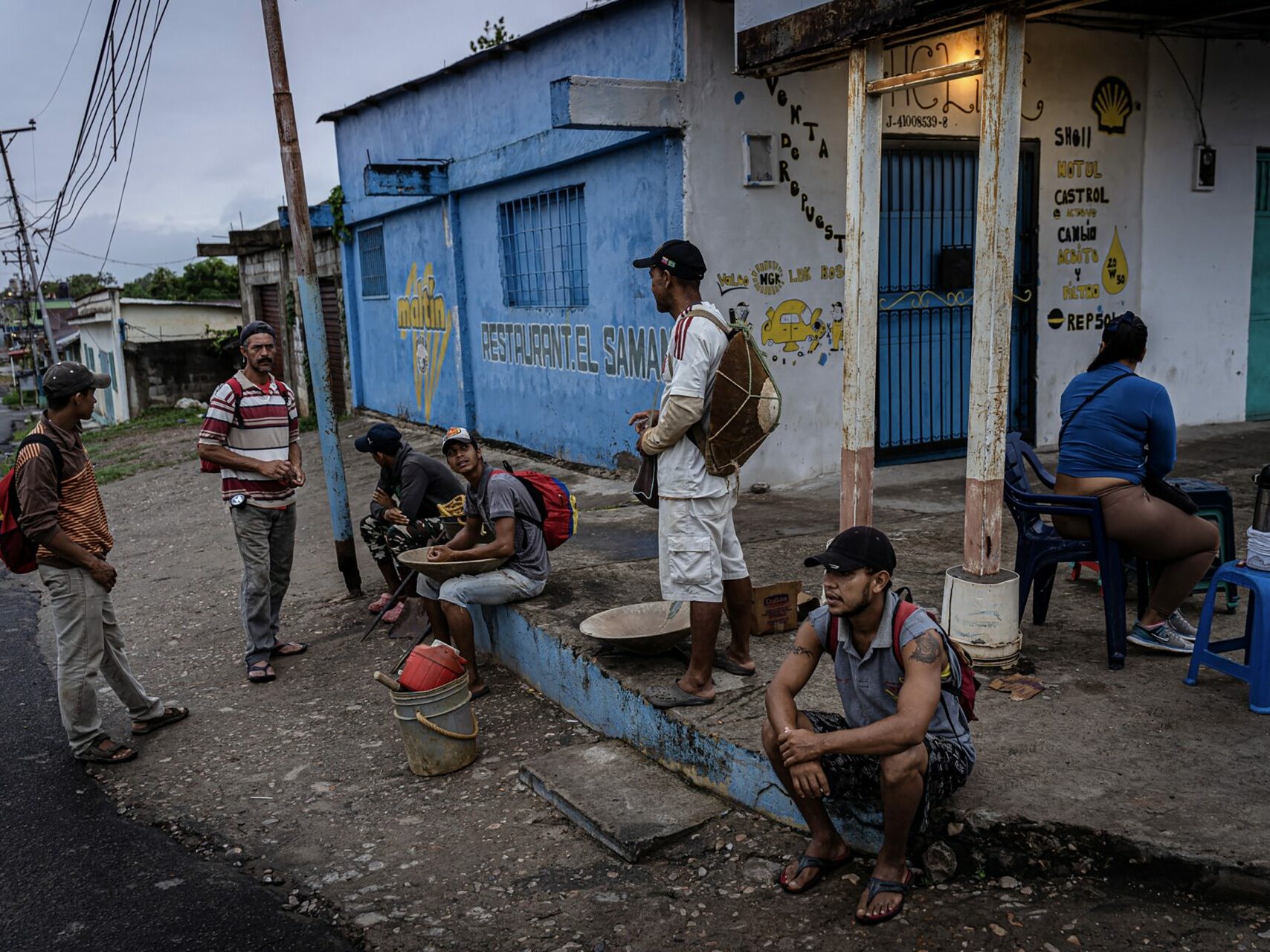
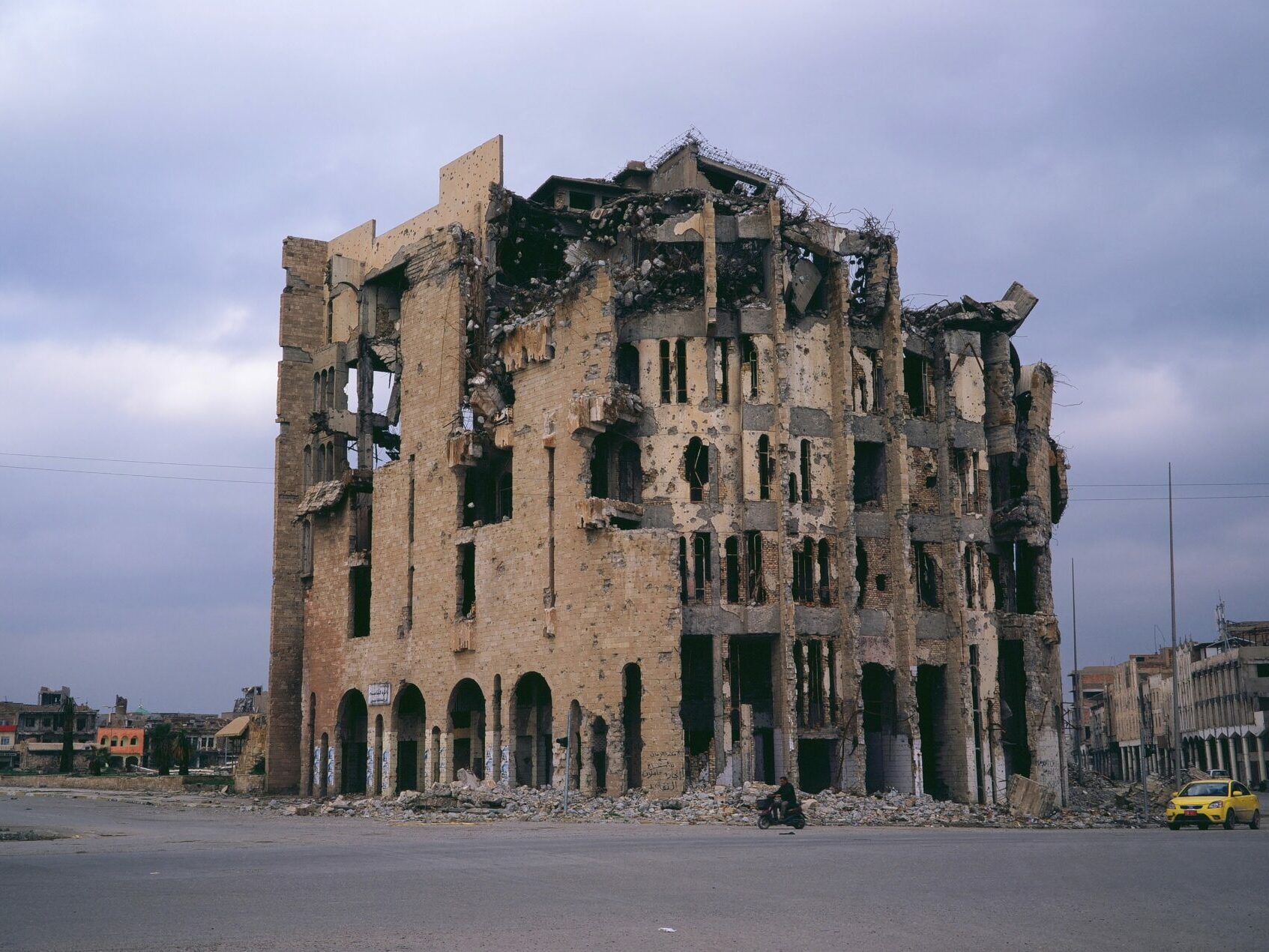
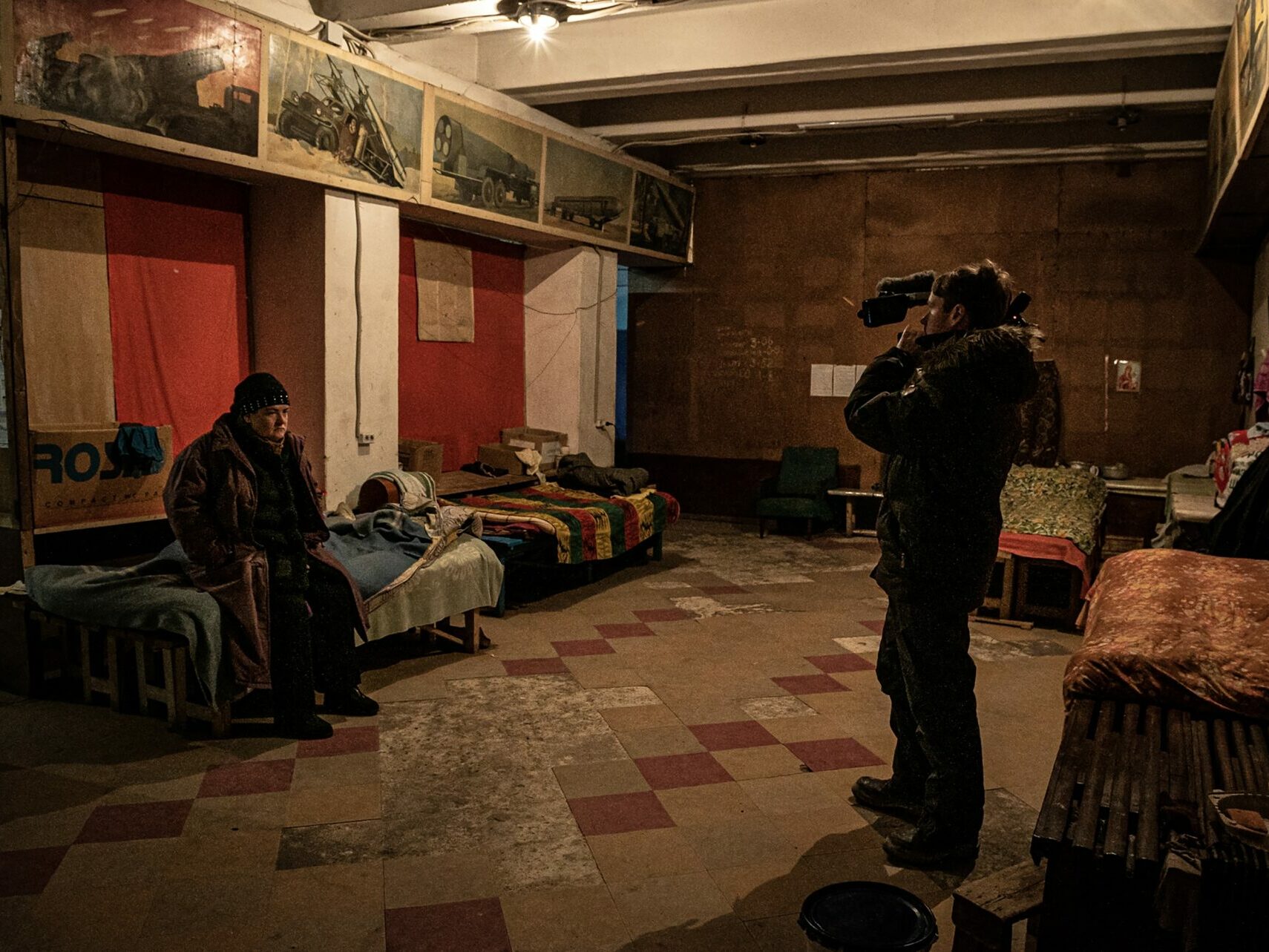
Now think about having a job that takes you to Iraq: a war-torn country in the Middle East where gay sex is punishable by up to six months in prison, or death, at the hands of militant Sunni Islamist group ISIS, under Sharia law.
Then imagine you’ve accidentally worn pink socks.
That’s exactly what happened to journalist Rupert Russell — despite buying a pair of “really ugly jeans” to look the part (“that was my big ‘passing’ thing”) — whose work has taken him to myriad unstable, and in many cases, anti-gay, countries in recent years.
He recounts such surreal experiences in his new book, Price Wars: How Chaotic Markets Are Creating Chaotic Worlds, a project that saw him filming in anti-LGBTQ+ countries as far-flung as Ukraine in Eastern Europe and Somalia in Eastern Africa. In each one, not only was he needing to get a job done while negotiating perilous conditions, but he also had the added pressure of needing to ‘pass’ as straight if he was to avoid imprisonment or worse.
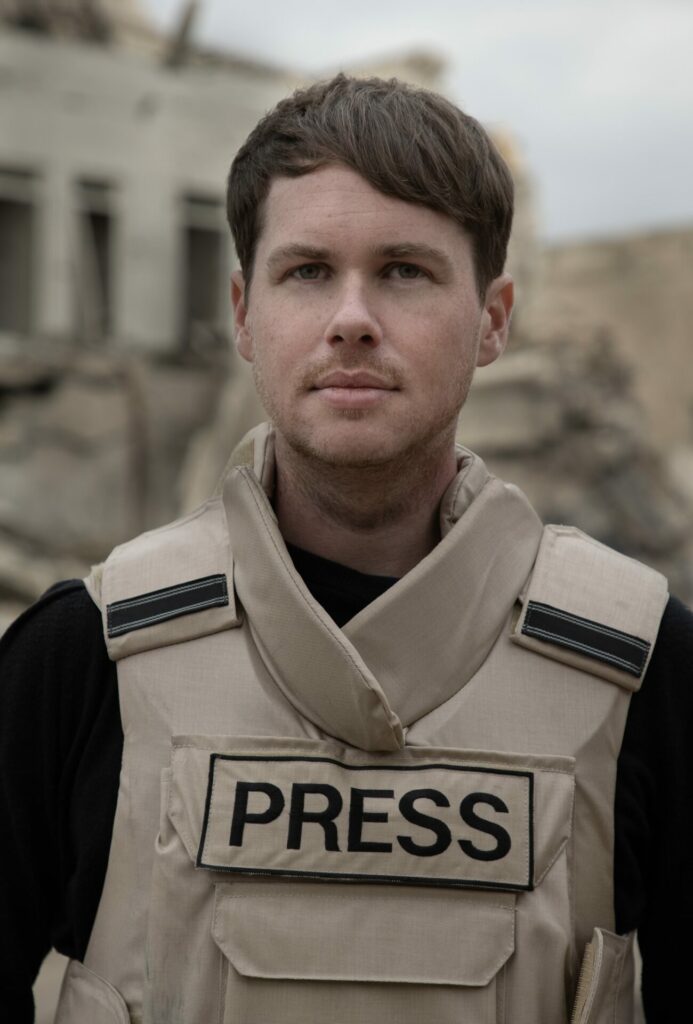
“Perhaps I should have stayed at home,” reads one passage of the book, recalling his stint in Mosul, Iraq, when it was under ISIS rule. “I am far outside my natural habitat. This world of hunky men with deep voices and flak jackets does not line up with my own boyish, camp demeanour. My mind rushes through various disaster scenarios, assigning a probability to each one. I wonder how long it would take after an ISIS cell kidnapped me before they would notice my pink socks, work out that I am gay and burn me alive on the spot. I already have to pass to the people I’m working with, avoiding the topic of boyfriends, girlfriends and marriage plans that comes up in car rides, at meals and over shisha. I realise it’s a bit late for second thoughts. I don’t have a different pair of socks in the car…”
Speaking to Attitude via Zoom, albeit from the safety of his home in Malaga, Spain, Russell describes similar memories, such as his translator in Mosul showing him a half-collapsed, five-storey structure — a former bank and now “a pile of rubble” — that had been used by ISIS to throw people accused of being gay to their deaths. “That was extreme, harrowing,” reflects Russell. “It was like a tomb — this complete hell ISIS had constructed. A monument to a terror regime. You can’t help but think: ‘That’s what I’d have been thrown off.’”
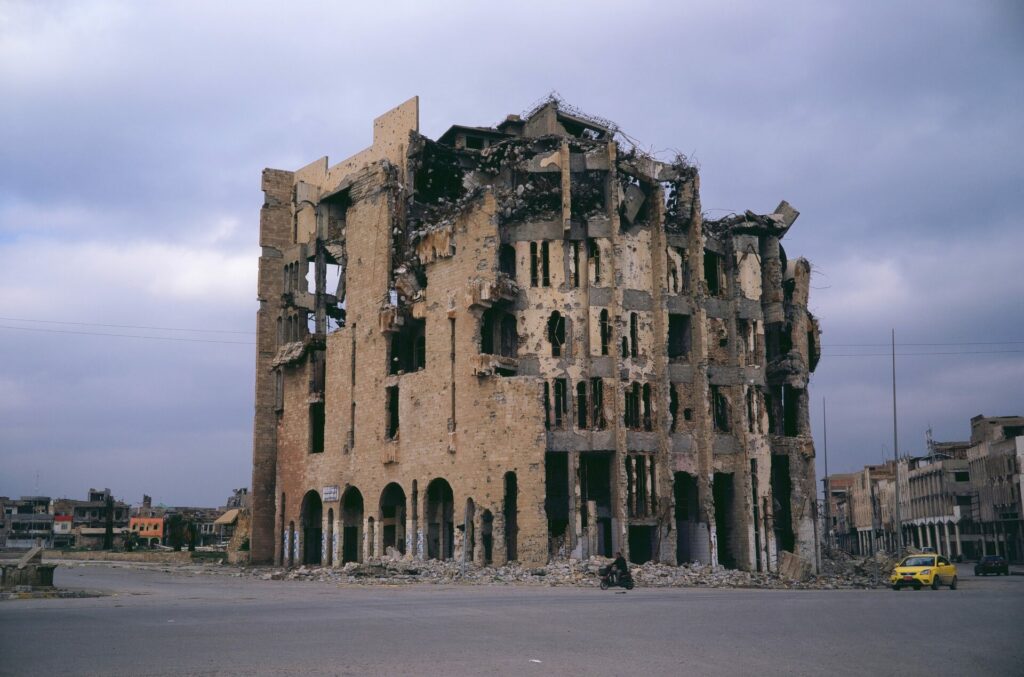
(Although no longer in ISIS clutches, Iraq, by the way, scores a horrendous 15/100 for LGBTQ+ rights by Equaldex — a collaborative, online ‘knowledge base’ for international LGBTQs — in 2022. The 0 to 100 ranking indicates the legal rights and public attitudes towards LGBTQ+ people in the region in question, with 100 being the most equal.)
“But it was important for my translator to stress: this was for people accused of being gay,” Russell adds. “You don’t know if this was neighbours or rival business owners arguing with each other who then made that accusation. He also said it was a routine event: midday at certain points during the week.”
In the book, Russell conjures such chilling scenes with a decidedly human voice; no mean feat given the work’s wider context, which could have made for a dry, detached read. Price Wars is ostensibly about how economic forces fuelled the political and social chaos of the 2010s: the Arab Spring of 2010-12, Brexit and Trump. It reveals that hedge fund managers and commodities traders based in the financial hubs of New York and London have manipulated the prices of essentials to maintain their profits. This means that the price of a staple like bread can rise even in years where there has been a good harvest. Russell argues that this practice has had a butterfly effect in contributing to human suffering and exacerbating social and political unrest in countries around the world.
“It’s all-consuming. Thoughts of going to a war zone as a gay man don’t register”
“It was important to me to go and speak to these people who were impacted by the price shocks,” says Russell. “It just wouldn’t work, describing this in abstract, economic terms.”
The project initially took the filmmaker — who was born in Carlisle, went to school in London, then university in Cambridge and to Harvard aged 21 — to the Netherlands, where he successfully pitched his idea at the 2017 International Documentary Film Festival Amsterdam. “It’s kind of like Dragon’s Den speed dating,” explains Russell, whose dad was also a filmmaker. “You have 15 minutes to pitch your idea to broadcasters from all over Europe.”
With a documentary commissioned, he assembled “very small teams, between three and four people, motley crews. Fixers, translators, producers. I picked people based on expertise, who knew the terrain we were going into. That was critical and baked into the cake before we set off. I tended to pick journalists or producers who had already done that story. Film is expensive and you need to shoot quickly — you want someone who’s already been out and filmed with cattle raiders in Kenya. I took a Spanish guy — this amazing photojournalist who took a lot of the pictures you’ve got. I picked him because I wanted a native Spanish speaker in Venezuela.”
The weeks before trips were “completely preoccupied with the boring bureaucratic aspects of hiring translators and fixers, getting visas, setting up interviews, locations. It’s all-consuming. Thoughts of going to a war zone as a gay man don’t register.” Hence the packing of the pink socks.
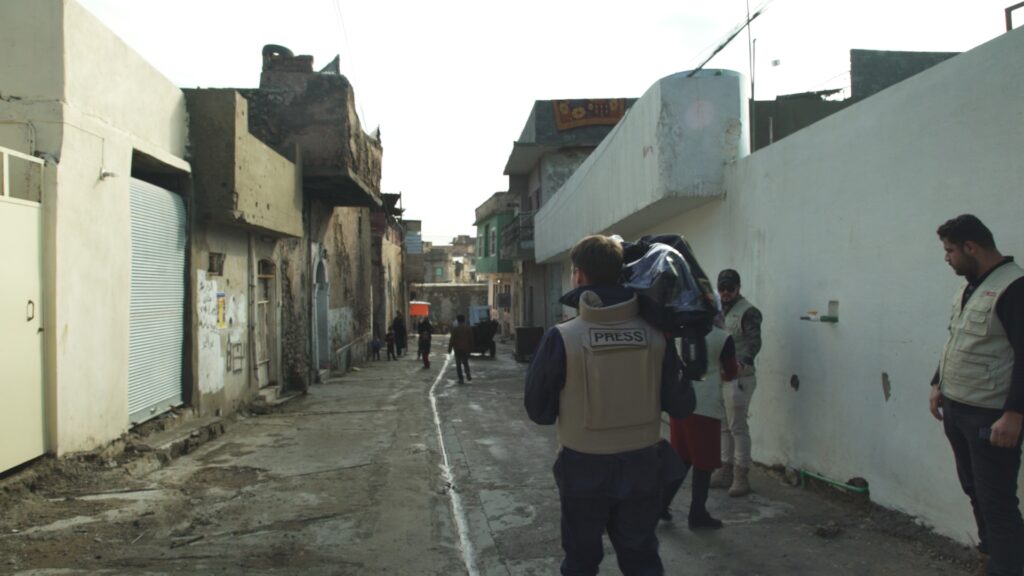
“Then you panic and go ‘Shit — I’m actually doing this.’”
One more essential step of prep, though, was training for the event of kidnapping. “It’s like army boot camp, an hour outside London at some country estate,” Russell explains. “My training was one day. You run around with ex-army people, and they set up various scenarios. I don’t know if I learned anything. There’s a lot of checkpoint stuff. A lot of ‘keep your head down’. Talk about football, which I’m not interested in. That’s something they’d say would humanise you, but I don’t think ISIS would’ve given a shit. Also, they just try to scare you: ‘In South America, if you’re pulled over by a cartel, they’ll just fucking kill you.’ Great advice! I think part of it’s just to terrify you not to take dumb risks.”
Russell promptly forgot his training, anyway, upon crossing over from Erbil in Kurdistan into Mosul, where “ISIS sleeper cells are actively kidnapping people.”
“It was the campest thing ever”
“I decided to take a photograph of the checkpoint,” he remembers. “A guy several hundred feet away sees me and drags me into some back office with my translator. There’s this honcho sitting there, leaning back in his leather chair, Dr No-style, with a bamboo cigarette. It was the campest thing ever.
“Military culture does have this inherent campness to it,” he further opines. “I think that comes from this work — private contractors and volunteers as well as soldiers — being quite emasculated. For the most part, these guys aren’t out there with machine guns battling ISIS. It’s quite boring work; a lot of standing around, smoking cigarettes. So, you get a lot of performative macho-ness, like wearing your flak jackets when you don’t need to. My ex-SAS security advisor told me: ‘If you want to get in with these guys for an interview, talk about footwear.’ They’re all obsessed with footwear: ‘What are the comfiest boots?’”
There’s another style-related story from Ukraine — the Eastern European country where gay sex is legal but scores a paltry 44/100 for LGBTQ+ rights by Equaldex.
“To be clear, where I went was the eastern breakaway state,” says Russell. “Some journalists go with the Ukrainian forces on the side — I went to the Russian-supporting side. I was in the black box. North Korea, basically. Imagine if Kent broke off from Britain and became allies with France.
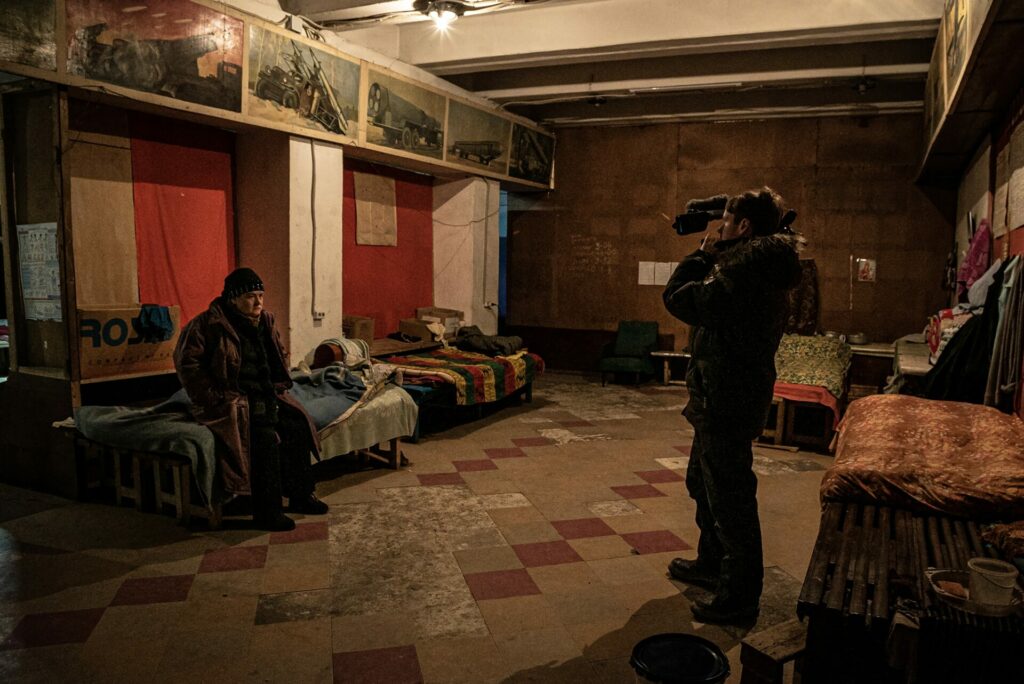
“Day one: I forgot my hat, and it’s fucking cold,” he remembers. “It’s December and you’re basically in Russia. A native of this area I was working with took me to this market. I try a hat on, and she says: ‘That hat make you look like a faggot.’ I don’t think she meant it in a mean way, but it was a definite indicator of where I was.”
He also remembers “going on the front line”, closest to the area of conflict. “It’s obviously all men. Trench warfare. There are days of more or less activity. [But often] nothing is happening. They stare at a blank field all day. Maybe a gun will go off, but not that often.
“They show us their underground bunker, their living quarters,” he continues. “There’s this tiny bed, and three of them sleep in it. You’re just like… The idea that nobody’s having sex in any of these beds? I suspect they do it out of sheer boredom. Also, the places that are the most homophobic have the most clandestine gay sex going on. That’s a universal rule of history.”
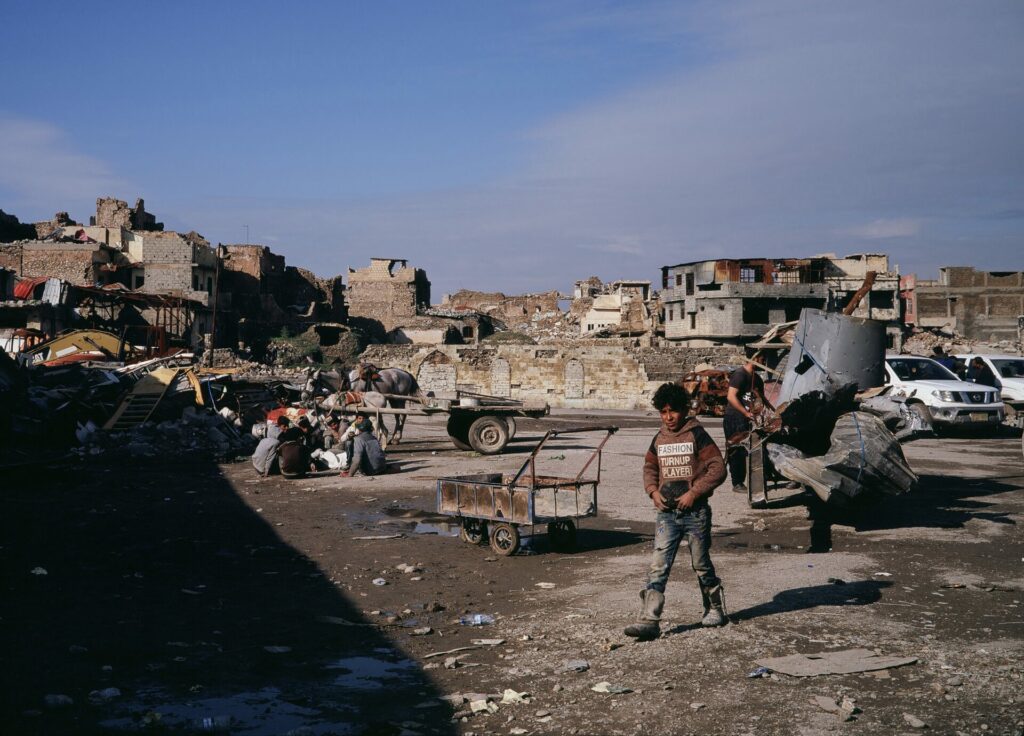
Fittingly, he remembers firing up Grindr and “the nearest person was 500 miles away, which is pretty unusual. You’re like, ‘Oh, OK. You really can’t be on anybody’s radar here.’ I guess gay people in Donetsk — where I was — assume it’s being monitored.” This, despite gay sex being legal in the country since 1991. “It’s actually pretty disturbing.”
In other countries, he opened the app out of curiosity: “What’s going on? What’s it like to be gay?” One of them was Iraq (“Erbil is as liberal a city as you’re going to get there — there were people around, but I don’t remember having any interesting conversations”). By contrast, he left Grindr well alone in Caracas, Venezuela: a country where gay sex has been legal since 1997, but where political corruption, hyperinflation and food and medicine shortages are rife in the modern era.
“I was really scared of being kidnapped — I didn’t want anyone to know where I was,” Russell explains. He adds that the biggest threat was not from organised crime — “you can just pay them off” — but “the government, and government police officers. It’s a lot more complicated to get out of.”
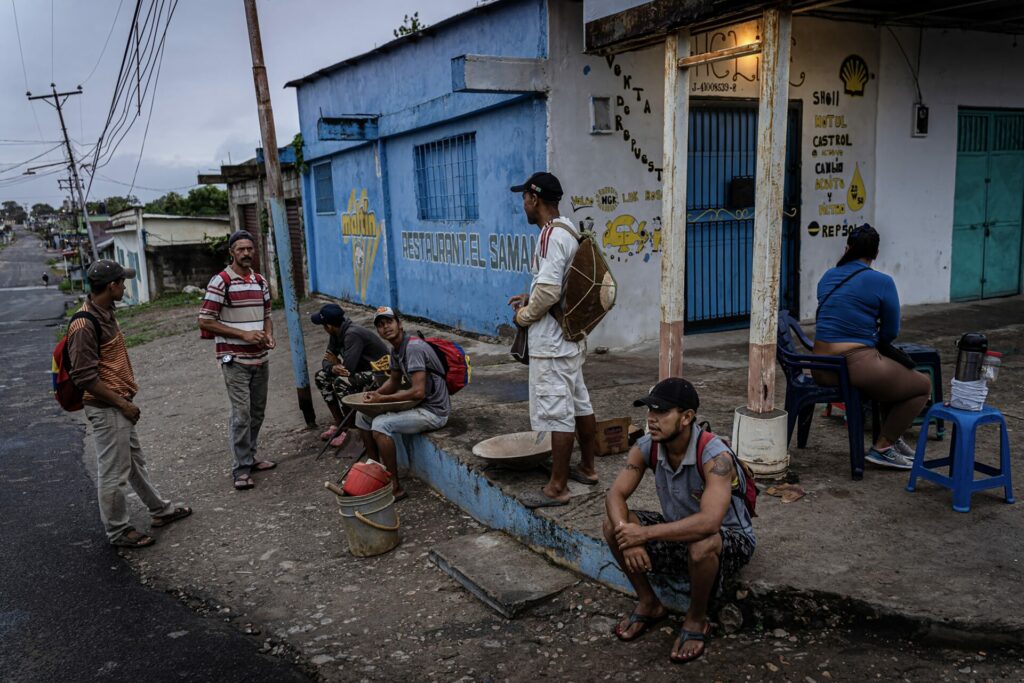
Indeed, Russell’s sexuality was something of an irrelevance when navigating the clear and present danger of many of his travels. In Somalia, for instance, which has been in a state of civil war for more than 20 years, he recalls WhatsApping friends while on “the Mogadishu Airport Base” (now known as Aden Adde International Airport), ahead of an “embed” — when journalists are permitted to accompany a specific military unit and its troops into combat zones.
“I don’t need to do it again. That’s definitely a lifetime’s worth of nearly dying” – Rupert Russell
“My friends were like: ‘Are you literally insane? You’re going to die. You’re in the most dangerous square mile in the entire world,’” he then says. “Al-Shabaab [militant group] frequently tries to drive trucks full of explosives into that base. The previous week there has been four bombings. I write about going out on the convoys. You can’t just walk out — you have to be escorted. You have to go with an AMISOM [African Union Mission in Somalia] convoy on an embed or you have to hire private security contractors.
“It costs thousands per day to do this, and it’s not quite clear if they will protect you. So, we had to wait for this convoy, and every day it was like Waiting for Godot. ‘The truck’s broken. We missed it. This time we’ll go.’ Eventually, we got lucky. You’ve got these armoured personnel carriers [APCs] that must be 40 years old, no suspension. You’re bouncing around in this tin can as part of this army operation and all you want to do as a journalist is get out of your bubble and talk to people.
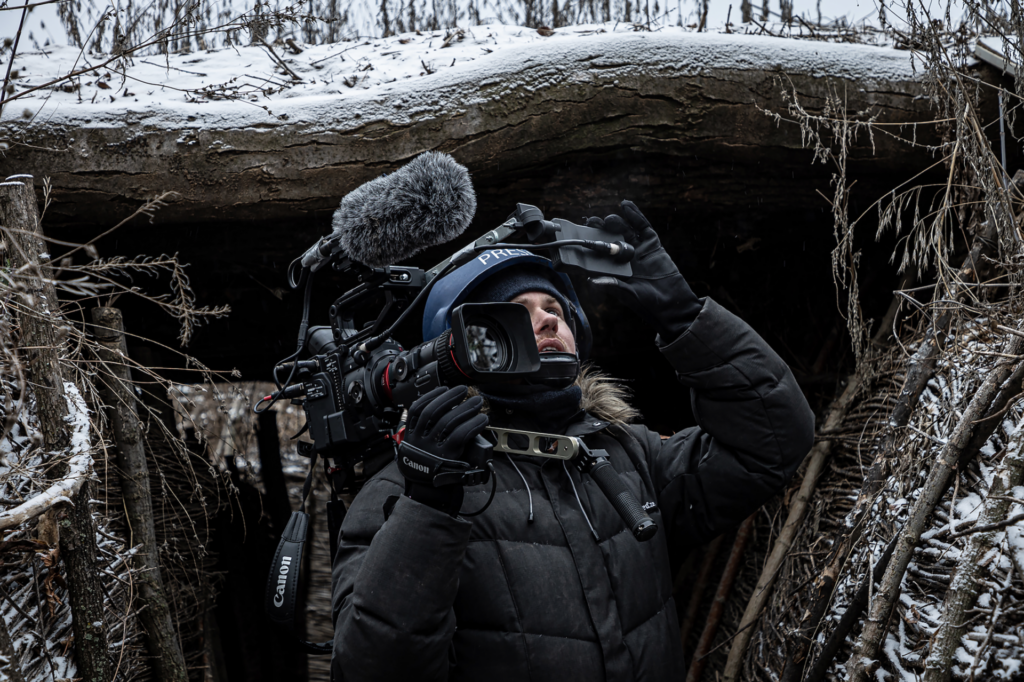
“We get to this town, and there are 50 soldiers from the Ugandan army. There’s a guy next to me holding an uzi — a fucking huge machine gun. Everywhere around me there are uniforms. There are four APCs now. I stop to film stuff and my handler taps me on the shoulder and is like: ‘You cannot stand still.’ Al-Shabaab could be there, and you don’t want to give them any opportunity to kill you, or the journalists I was with or any of the troops.”
Illustrating just how psychologically confusing such places can be, he describes being back at the base as eerily “normal; it’s really sunny, there’s the beach, fresh fish. Everything feels really normal.”
Russell is now fully back to normality with his dogs — and also his boyfriend — in Spain. I tell him it was just as well that he was single while working on the project. A worried partner, after all, would have added yet another layer of stress and complexity. “I know, right?” he laughs.
“I’m happy to talk about this because it’s past tense for me,” he says. “I don’t need to do it again. That’s definitely a lifetime’s worth of nearly dying.”
Price Wars is out now
This feature first appeared in Attitude issue 345.
